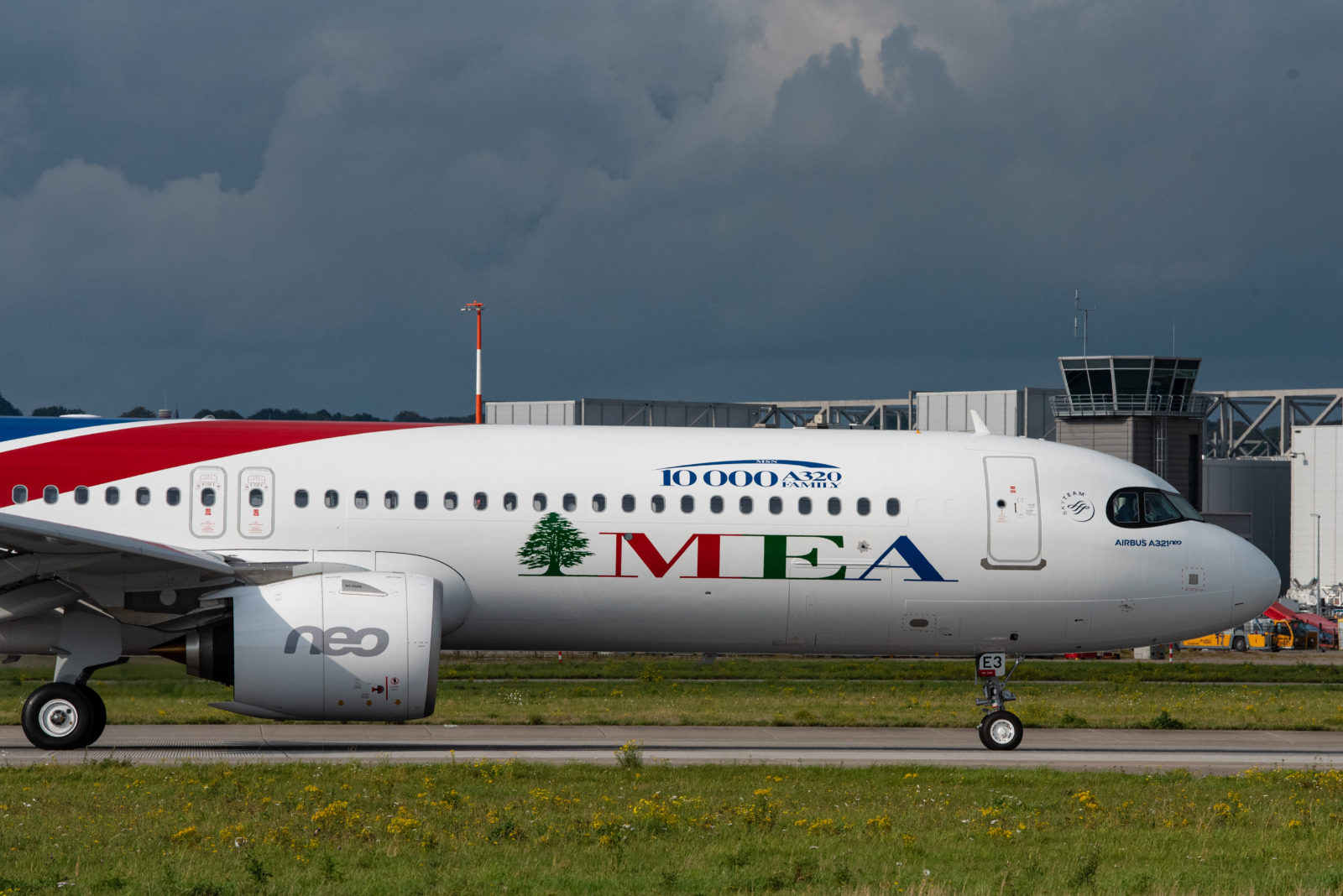
Lebanon’s national flag carrier, Middle Eastern Airlines, has been forced to delay a slew of flights that were scheduled to depart on Sunday after insurance companies removed their cover, fearing an Israeli counter-strike on Beirut–Rafic Hariri International Airport.
The airline, which is often known simply as MEA, has delayed 18 flights overnight until Monday so that the aircraft are positioned outside of Lebanon where they cannot be damaged by a potential airstrike by the Israel Defense Force.
The aircraft that will remain outside Lebanon include a four-year-old Airbus A321neo that will be parked up in Riyadh, an A321neo that will remain overnight at London Heathrow, a three-year-old A321neo that will be positioned out to Larnaca for Sunday night, and another three-year-old A321neo that is being sent to Saudi Arabia overnight.
A larger Airbus A330 aircraft will also delay its departure from London Heathrow on Sunday to avoid any trouble that might emerge in Beirut, and there are other MEA planes parked up in Copenhagen, Doha and Dubai.
There are mounting fears that tensions between Israel and Lebanon’s paramilitary and political group Hezbollah might escalate into a much wider regional conflict following a rocket attack in the occupied Golan Heights, which killed 12 young people on Saturday.
Hezbollah has refuted allegations that it was responsible, but the IDF has pinned blame on the group, and Israeli Prime Minister Benjamin Netanyahu has reportedly been given the green light from the White House to launch a counter-strike.
Israeli media report Netanyahu intends to order a significant response which could include airstrikes on Beirut’s main airport in an attempt to disable the airfield.
It has been claimed that Lebanon’s government has wittingly allowed Hezbollah to use Beirut to receive and store weapons from Iran, including Falaq unguided artillery rockets, Fateh-110 short-range missiles, road-mobile ballistic missiles and M-600 missiles.
The Lebanese government has dismissed the claims.
MEA was forced to cancel flights and position some of its planes outside of Lebanon last October over fears that the IDF was plotting an airstrike on Beirut airport. The airline has moved some aircraft out of harm’s way on a number of occasions, including in the run-up to the 2006 Lebanon War when Israeli warplanes bombed three runways at the airfield.
Related
Mateusz Maszczynski honed his skills as an international flight attendant at the most prominent airline in the Middle East and has been flying ever since... most recently for a well known European airline. Matt is passionate about the aviation industry and has become an expert in passenger experience and human-centric stories. Always keeping an ear close to the ground, Matt's industry insights, analysis and news coverage is frequently relied upon by some of the biggest names in journalism.







